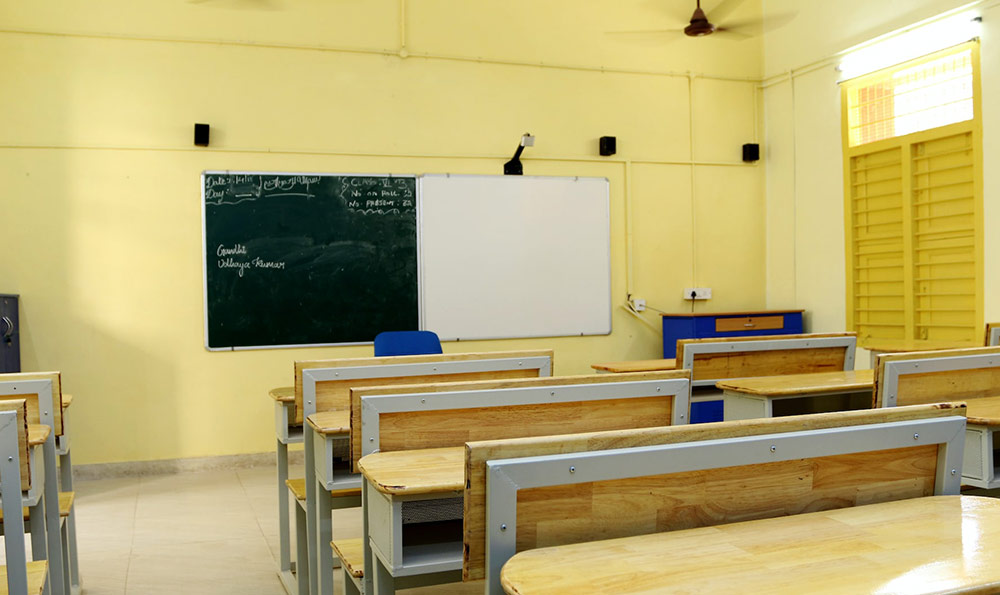高二英语 在整个高中英语中占有非常重要的地位,既是高二又是整个高中阶段的重难点,所以要保持良好的学习心态和正确的 学习 方法 。接下来是我为大家整理的英语高考必背知识要点,希望大家喜欢! 英语高考必背知识要点一 一、不定式做主语: 1、不定式做主语一般表示具体的某次动作。===动名词doing 表示习惯的,经常的动作。 : To finish the building in a month is difficult. To do such things is foolish. To see is to believe. (对等) 注: 1). 不定式作主语时,谓语用单数 2). 当主语较长,谓语较短时,常用it做形式主语,而将不定式放到谓语的后面。 it做形式主语,不定式放在谓语动词之后常用于下列结构中: (1)It is/was adj. of sb. to do… (2) It is adj. for sb. to do… It is easy / difficult / hard / foolish / unwise / right / wrong / unnecessary (3) it is a 名词 to do... It is a pity / a pleasure / a pleasant thing / one’s duty / an honor / a shame / a crime / no easy job… to do It takes (sb.) some time / courage / patience …to do… It requires courage / patience / hard work… to do… 注意: probable 和 possible 均可作表语,但possible可以用不定式作真实主语, 而probable不能用不定式作真实主语。 It is probable for him to come to the meeting.(错) It is possible for him to come to the meeting. It is possible / probable that he will come to the meeting. 英语高考必背知识要点二 一、非谓语动词 “非谓语动词”可分为动词不定式、 句子 中的作用很多:除了不作谓语外,它可以充当主语、宾语、表语、定语、状语与复合宾语(主语补语或宾语补语).:一感(feel).二听(hear,listen to),三让(have,1et, make),四看(see,watCh,notice,observe).再加上help somebody(to)do something和美国英语look at somebody do “二让”属特殊:get somebody to do something 与keep somebody (the -ing form):Papa C makes :permit,advise, practise,avoid,consider,mind, allow,keep,enjoy,suggest, finish,risk,imagine,escape,need,delay,stand(忍受). 为了容易记住,也可以编成 顺口溜 :“允许完成练习,建议避免冒险,考虑延期逃跑,喜欢保持想象,需要反对忍受”.其相对应的动词依次是:permit/allow,finish,practise; advise/suggest, avoid,risk: consider, delay, escape/miss; enjoy/appreciate, keep, imagine; need/want/require,mind. cant help/can’t stand. 二、复合句 1、学生最容易混淆的是定语从句与同位语从句的区别. 例如:A、The news that our team has won the match is true. (同位语从句) B、The news that he told us surprised everybody here. (定语从句) 关键的区别在于连接或关系代词that:有意义的是定语, 宾语,而引导同位语从句的that只起到连接词的作用. 2、接着容易混淆的是引导定语从句的关系代词that与 which:that之前是不定(代词)、序数(词)、(形容词)级:which之前是介词 短语 与逗号(非限制性). 例如:A、All that we have to do is to practise every day. B、The first lesson that I learned will never be forgotten. C、I have lost my pen,which I like very much. D、The house in front of which there is a garden is my home. 三、It的用法 1、It除了代替人和物以外,(不定式、动名词或从句)则放于谓语或表语之后. 例如:It is nor easy to finish the work in two days. :无助(no help)、无用(no use)、没好处(no good);工作(hard work)、费时(a waste of time)、又危险(a danger). 例如:A、It is no use crying over spilt milk. B、It is a waste of time waiting for him. 2、:2f2tcjm(find,feel,think,take,consider,judge, make). 例如:A、He made it clear that he was not interested in this subject. B、I think it no use arguing with him. 3、(主语、宾语、 状语),:It is(was) 被强调部分 that(who) 句子的其余部分. 例如:A、It iS Professor Lin who teaches us English—(强调主语) B、It was in Shanghai that l saw the film.—(强调状语) C、It was in 1990 that I worked in the factory.(同上) 但要注意与定语从句的区别. 例如:D、It was 1990 when I worked in the factory.(定语从句) 在强调句式里,我们把强调结构It is(was)…that除去,. 四、倒装结构 ,编个顺口溜:副(adv.)介(prep.)提前全倒装, 其它 句式部分倒;否定提前倒助动,让步状语倒表语;复合句式倒主句,不 : A、Here comes the bus.(副词提前,全倒装) B、Here he comes.(代词作主语,不倒装) C、In front of the house lies a garden.(介词短语提前,全倒装) D、Never shall I do this again.(否定词提前,部分倒装) E、Young as he is ,he knows a lot.(让步状语从句,表语倒装) F、Only when he told me did I realize what trouble he was in.(only 修饰状语,主句倒装) G、Only he can save the patient.() H、Not only will help be given to people,but also medical treatment will be provided.(否定词提前,部分倒装) I、Not only he but also we like sports.(连接两个主语,不倒装) 五、虚拟语气 、假设、猜测或建议,:纯假设,用虚拟,动词时态退一级:条件句,分主从,主句谓语前加would (should,could,might);表愿望,用虚拟,wish后面接宾语(从句):现在过去与将来,动词时态退一级:提建议,用虚拟,宾语(从句)动词用(should)do:俩建议,三要求,再加坚持与命令(suggest,advise,demand,require,request,insist,order):It is time和eoukd rather,后接丛句用虚拟:部分主语从句中, 谓语用虚拟结构 (It is necessry /important/natural/natural/strange/strange that……should do). 下面举例说明: A、If you came tomorrow,we would have the metting. (条件句虚拟) B、Without air,there would be no living things.(同上) C、We wish we had arrived there two hours earlier.(表示愿望虚拟) D、He demanded that we (should)start right away.(表示建议虚拟) E、It is(high)time that we left (should leave)now.(特殊从句虚拟) F、I would rather you gave me the book.(同上) G、It is necessary that we should clean the room everyday,(主语从句虚拟) H、He speaks English so fluently as if he were English. (特殊从句虚拟) 英语高考必背知识要点三 1. 高考 英语口语 考试必背 2. I see. 我明白了。 3. I quit! 我不干了! 4. Let go! 放手! 5. Me too. 我也是。 6. My god! 天哪! 7. No way! 不行! 8. Come on. 来吧(赶快) 9. Hold on. 等一等。 10. I agree。 我同意。 11. Not bad. 还不错。 12. Not yet. 还没。 13. See you. 再见。 14. Shut up! 闭嘴! 15. So long. 再见。 16. Why not? 好呀! (为什么不呢?) 17. Allow me. 让我来。 18. Be quiet! 安静点! 19. Cheer up! 振作起来! 20. Good job! 做得好! 21. Have fun! 玩得开心! 22. How much? 多少钱? 23. Im full. 我饱了。 24. Im home. 我回来了。 25. Im lost. 我迷路了。 26. My treat. 我请客。 27. So do I. 我也一样。 28. This way。 这边请。 29. After you. 您先。 30. Bless you! 祝福你! 31. Follow me. 跟我来。 32. Forget it! 休想! (算了!) 33. Good luck! 祝好运! 34. I decline! 我拒绝! 35. I promise. 我保证。 36. Of course! 当然了! 37. Slow down! 慢点! 38. Take care! 保重! 39. They hurt. (伤口)疼。 40. Try again. 再试试。 41. Watch out! 当心。 42. Whats up? 有什么事吗? 43. Be careful! 注意! 44. Bottoms up! 干杯(见底)! 45. Dont move! 不许动! 46. Guess what? 猜猜看? 47. I doubt it 我怀疑。 48. I think 。 49. Im single. 我是单身贵族。 50. Keep it up! 坚持下去! 英语高考必背知识要点有哪些相关 文章 : 1. 高考英语必背知识点 2. 2017年高考英语必背知识点 3. 高考英语必考的40个重点句型 4. 2020新高三英语超全规划与高考英语高分必背知识点 5. 高二英语必背知识点重点归纳 6. 英语高考知识点归纳 7. 英语高考知识点总结归纳 8. 高考英语知识点归纳整理 9. 高考英语知识点归纳 10. 高考英语知识点考点归纳

英语高考必背单词
一、一个星期七天 1. Monday 2. Tuesday 3. Wednesday4. Thursday5. Friday 6. Saturday 7. Sunday二、一年十二个月

1. January 2. February 3. March 4. April 5. May 6. June 7. July 8. August 9. September 10. October 11. November 12. December三、一年四季
1. spring 2. summer 3. autumn 4. winter四、容易拼写错的数字
1. eighth第八 2. ninth第九 3. forty四十 4. twelfth第十二 5. twentieth第二十 四、亲属称呼
1. daughter (女儿) 2. niece (女性晚辈) 3. nephew (男性晚辈) 4. cousin (同辈兄弟姐妹) 5. aunt (女性长辈) 6. uncle (男性长辈) 五、以下动词加-ed或-ing要双写最后一个字母
1. regret (regretted, regretting) 后悔
2. control (controlled, controlling) 控制
3. admit (admitted, admitting) 承认
4. occur (occurred, occurring) 出现
5. prefer (preferred, preferring) 宁愿
6. refer (referred, referring) 提到
7. forget (forgetting ) 忘记
8. permit (permitted, permitting)允许
9. equip (equipped, equipping) 装备
注意:quarrel, signal, travel中的l可双写(英国英语)也可不双写(美国英语)六、部分过去式和过去分词不规则变化的动词
1. broadcast (broadcast, broadcast) 广播
2. flee (fled, fled) 逃跑
3. forbid (forbade, forbidden) 禁止
4. forgive (forgave, forgiven) 原谅
5. freeze (froze, frozen) 结冰
6. hang (作“绞死”讲,是规则的;作“悬挂”讲,其过去式过去分词都是hung)
7. lie (作“说谎”讲时,是规则的;作“位于”讲时,其过去式是lay,过去分词是lain)
8. seek (sought, sought) 寻求
9. shake (shook, shaken) 发抖
10. sing (sang, sung) 唱歌
11. sink (sank, sunk/sunken) 下沉
12. spread (spread, spread) 传播
13. swim (swam, swum) 游泳
14. tear (tore, torn) 撕碎
15. weave (wove, woven) 编织 七、意思相近的词
1. check / examine/ test
2. receive / accept
3. destroy /damage
4. celebrate/ congratulate
5. wear / dress 八、注意形容词变名词时的拼写变化
1. long—length 长度 2. wide—width 宽度 3. high—height 高度 4. strong—strength力量 九、以-ic结尾的动词,应先把-ic变为-ick,再加ing或ed
1. picnic (picnicked, picnicking) 野餐 十、个别名词的复数拼写
1. German (Germans) 德国人 2. gulf (gulfs) 海湾 3. handkerchief (handkerchiefs) 手帕 4. hero (英雄),potato (土豆),tomato (西红柿) 等有生命的以-o结尾的名词变复数时要加-es。
5. roof (roofs) 房顶 6. stomach 胃 (其复数是stomachs而不是加es)十一、注意动词变名词时的拼写变化
1. succeed—success成功 2. pronounce—pronunciation 发音 3. explain—explanation解释 4. decide—decision 决定
5. enter—entrance进入 6. permit—permission 允许
7. refuse—refusal 拒绝 8. consider—consideration 考虑
9. discover—discovery 发现 10. bury—burial 埋葬
11. conclude—conclusion 得出结论 12. arrive—arrival 到达 13. weigh—weight 重量 十二、注意形容词变副词时的拼写变化
1. beautiful—beautifully 美丽的 2. possible—possibly 可能的
3. practical—practically 实际的 4. particular—particularly 特别的
5. successful—successfully 成功的 十三、其它必背单词
1. abroad 国外 2. absence n. 缺席 (absent adj.)
3. accepted (NMET1997) 4. accident事故 (accidental adj. 偶然的,accidentally adv. 偶然地) 5. achievement成就 (achieve v. 获得)
6. address地址 7. admire钦佩 8. admitting (2000北京春季卷)
9. agreement 协议 10. agriculture农业 (agricultural adj. 农业的)
11. altogether总共 12. ancient 古代的 13. announced(NMET1999)
14. anxiety 忧虑 (anxious adj. 焦急的,anxiously adv. 焦急地)
15. apologize v. 道歉 (apology n. 道歉apologetic adj. 道歉的,apologetically ) 16. apologize/apologise (2000全国卷)
17. appreciate感激/欣赏 (感激人用thank sb;谢谢某人做的事用appreciate sth.) 18. Asian(NMET1996) 19. assistant 助手 20. astonish吃惊 (astonishment n. 吃惊,astonishing,astonished)
21. astronaut 宇航员 22. atmosphere气氛 23. attempt尝试 (可作名词也可作动词) 24. attentively 专心地 25. attentively(NMET1996) 26. attitude 态度 27. attract 吸引 (attraction吸引力) 28. average 平均
29. average(NMET1999) 30. balance平衡 31. beauty 美 (beautiful)
32. believe相信 (belief n. 信念,其复数是beliefs) 33. beyond超过
34. biology生物 35. birthday生日 36. bravery 勇敢 (NMET1996) 38. broadcast广播 (过去式、过去分词同原形)
39. carefully 小心 (carefully) 40. ceiling天花板 41. celebrated (2000北京春季卷) 42. celebration 庆祝 (celebrate n. 庆祝)
43. century 世纪 44. challenge 挑战 45. character 性格
46. charge收费 47. cinema电影院 48. comfort v. & n. 安慰 (comfortable adj. comfortably ) 49. comfortably(NMET1997) 50. comment 评论 51. communication 交流 52. competition 竞赛 (compete v. 竞赛competitor 竞赛者) 53. composition 作文 54. concert 音乐会 55. conclude v. conclusion n. 结论 56. condition情况 (conditions条件)
57. confessing (2000北京春季卷) 58. congratulations 祝贺 (congratulate v.) 59. constantly 不断地 60. construction(NMET1996) 61. continue继续
62. contribution 贡献 (contribute v.) 63. conveniently方便 (convenient adj.) 64. conversation 谈话 65. coughing(NMET1997) 66. cousin表兄弟
67. cruelty 残酷 (cruel adj. cruelly adv.) 68. curious 好奇 (curiosity n. 好奇) 69. curious(NMET1996) 70. customer 顾客 71. customers (2000北京春季卷) 72. custom习俗 73. damage损坏 74. declared(NMET1999)
75. delicious 美味 76. destroy毁灭 (其过去式是destroyed)
77. determined 有决心的 78. develop发展 (development n. developing 发展中的,developed发达的) 79. dialogue 对话 80. diary 日记 (dairy 奶制品) 81. difference 不同点 (有复数形式) 82. disappointed失望 (disappointing 让人失望的) 83. disappointment 失望
84. discovery 发现 (其复数是discoveries,其动词是discover,discoverer发现者) 85. disturb打扰 86. dollar美元 (其复数是dollars) 87. downstairs楼下 88. dream梦想 (其过去式是dreamed或dreamt)
89. electricity电 (electrical电的,electric 电的)
90. employ 雇用 (employment n. employer 雇主,employee雇员)
91. empty倒空 (可用动词,其过去式是emptied)
92. encourage鼓励 (encouraging, encouraged, encouragement n.)
93. energy能量 94. envelope 信封 95. envy n. 妒忌 (envious adj.) 96. equal(NMET1998) 97. equipment设备 98. especially 尤其是 99. essential(NMET1999) 100. European 欧洲人 101. event事件 102. excellent极好 (excellence n. excellently adv.) 103. exhibition(NMET1997)
104. exhibition展览 105. expense 耗费 106. experience 经验 (experienced 有经验的) 107. expert 专家 108. expression 表达
109. failure 失败 (fail v.) 110. familiar(NMET1999) 111. familiar熟悉的 112. favorite 最喜爱的 (即作形容词也作名词,作名词时有复数)
113. figure人物/数字 114. finger手指 115. flight飞行 116. forehead前额 117. foreign(NMET1998) 118. fortunately幸运地 119. forward向前
120. freezing 极冷的 (frozen 冷冻的) 121. frequently 经常地
122. furniture 家具 123. further进一步的 124. generally (2000全国卷)
125. geography地理 126. Germany德国 127. government(NMET1996) 128. gradually逐渐地 129. graduation毕业 (graduate)
130. grammar语法 131. habits (NMET1997)
132. handkerchiefs (2000北京春季卷) 133. honesty 诚实 (honest)
134. honor/honour 荣誉 135. imagination 想象力 (imagine v.)
136. immediate (2000北京春季卷) 137. immediately马上 138. impress 印象 (impression n.) 139. incident小事件 140. including包括 (include v.)
141. indispensable (NMET1999) 142. industry工业 (industrial adj. 工业的) 143. information 信息 144. inspire激励 (inspiration n. inspiring, inspired) 145. institute学院 146. instrument 仪器 147. interest 兴趣
148. interrupt 打断 149. interrupt打断 150. introduce介绍 (introduction n.) 151. irregular 不规则的 152. journey旅程
153. judge判断 (judgment) 154. kindergarten幼儿园 155. knowledge 知识
156. labor/labour劳动 157. late1y(NMET1999) 158. laughter笑声
159. lawyer律师 160. librarian图书馆理员 161. loss损失 (lose, lost 是其动词形式) 162. luckily幸运地 163. magazine杂志 164. majority (2000北京春季卷) 165. majority大多数 166. manage 设法 (manager, management)
167. market(2000全国卷) 168. marriage 结婚 (marry v. 结婚,married已婚的) 169. material(s)/cloth(NMET1996) 170. material物质/材料
171. mayor市长 172. mean (NMET1999) 173. measure测量 174. medal 奖章 (比较:model 模型) 175. memory记忆力 (memorize v. remember 记得) 176. messages (2000全国卷) 177. metal 金属 178. modern现代的
179. modest谦虚的 180. monitor 班长/监控 181. moustache 胡子
182. murder谋杀 (murderer 凶手) 183. musician 音乐家 184. mysterious 神秘的 (mystery 神秘) 185. nationality国籍 (nation 国家,national国家的) 186. naturally(NMET1998) 187. naughty 淘气的 188. necessary(NMET1999) 189. ninth(NMET1998) 190. normal 正常的
191. obey (NMET1997) 192. obviously明显的 193. offering (2000全国卷)
194. operation手术 195. opportunity 机会 196. ordinary 普通的 197. organized/organised(NMET1996) 198. particularly 特别是 199. passenger 旅客 200. passengers(NMET1999) 201. patience耐心 (patiently) 202. patient病人/耐心 203. perfect 完美 (perfectly) 204. performed(2000北京春季卷) 205. perhaps 或许 206. period 时期 207. permission许可
208. persuaded(NMET1996) 209. phenomena 现象 210. physicist 物理学家
211. pilots (2000全国卷) 212. poisonous 有毒的 (poison) 213. political 政治的 (politics) 214. popular受欢迎的 215. population人口 216. position 职位 217. possibility(-ies)可能性 (possible 可能的)
218. poverty 贫穷 (poor) 219. poverty贫穷 220. practical (NMET1997)
221. preparing(NMET1998) 222. pressure(NMET1997) 223. pretend假装
224. professor 教授 225. profit 利润 226. progress进步 227. pronunciation (2000北京春季卷) 228. provide 提供 (比较:offer, supply) 229. public 公众 230. purpose目的 231. quality(NMET1996) 232. quantity数量 233. realistic(NMET1997) 234. receive 收到 235. recently(NMET1999)
236. recognised/recognized(NMET1999) 237. recognize 认出 (recognition 承认) 238. regards 问候 239. remind提醒 240. repeat (repetition)重复
241. respect尊敬 242. restaurant 餐馆 243. restaurants(NMET1999)
244. satisfaction满意 (satisfy, satisfied, satisfying) 245. satisfactory 满意的 246. Saturday(NMET1998) 247. scientific 科学的
248. scientific科学的 249. secretary秘书 250. secretly (2000北京春季卷) 251. separately单独地 252. separates (NMET1998) 253. serious 严重的 (seriously) 254. service服务 255. shortcoming缺点 256. silence 安静 (silent) 257. similar (2000北京春季卷) 258. similar 类似的 (similarity –ies相似之处) 259. situation形势/情况 260. slightly(2000全国卷) 261. society 社会 (social adj. 社会的) 262. southern(2000全国卷) 263. special特别的 264. species 物种 (单复数同形) 265. spring(NMET1997) 266. square 平方 267. stolen(2000全国卷) 268. straight(NMET1997) 269. suitable合适的 270. support支持
271. surprise吃惊 272. surround 包围 273. swimming(NMET1998) 274. technique 技术 (technical adj.) 275. technology技术 276. temperature温度 277. theory 理论 278. thirsty口渴 279. thorough (NMET1997) 280. total合计 281. traffic 交通 282. translated(NMET1998)
283. translation 翻译 (translator翻译家,interpret 解说, interpreter 口语翻译)
284. umbrella(NMET1999) 285. umbrella伞 286. unusually不寻常 (unusual不寻常的) 287. unwilling 不愿意 (willing adj. 愿意 will n. 意志)
288 upstairs(2000全国卷) 289. upstairs楼上 290. vacation假期 291. various各种各样的 (variety n. 种类) 292. victim受害者 293. victory胜利 294. vocabulary词汇 295. voyage航行 296. waste (NMET1999) 297. wealth财富 298. weather(NMET1998) 299. whisper 低语 300. worship崇拜
301. youth年轻人 (复数加-s) 302. zero 零
高考相关知识
如果你是文科生,是考语文,英语,数学,文综(政治,历史,地理)

如果你是理科生,是考语文,英语,数学,理综(物理,化学,生物)但有两个成语估计大家都听说过:“高屋建瓴”和“纲举目张”。当众多考生都钻在书山题海中时,如果你能站在高考命题者的高度来审视所复习的知识,来分析历年高考真题及答案,你的感受肯定不一样。那种居高临下的感觉会让你把握更全面、了解更透彻。同样,老师在带领同学们复习时,常说要把知识串成串、结成网,督促大家做思维导图、复习提纲,理由就是“纲举才能目张”。其实,知识体系还是小纲,上面还有一个“考试大纲”。抓住了各科“大纲”的要义,复习起来才会举重若轻。所以说,弄懂高考考什么不仅有意义,而且意义很大!比如化学高考对学生化学学习能力的要求——
、吸收、整合化学信息的能力
(1)对中学化学基础知识能正确复述、再现、辨认,并能融会贯通。
(2)通过对自然界、生产和生活中的化学现象的观察,以及实验现象、实物、模型的观察,对图形、图表的阅读,获取有关的感性知识和印象,并进行初步加工、吸收、有序存储。
(3)从提供的新信息中,准确地提取实质性内容,并与已有知识整合,重组为新知识块。
(1)将实际问题分解,通过运用相关知识,采用分析、综合的方法,解决简单化学问题。
(2)将分析和解决问题的过程及成果,能正确地运用化学术语及文字、图表、模型、图形等进行表达,并做出合理解释。
(1)掌握化学实验的基本方法和技能,并初步实践化学实验的一般过程。
(2)在解决化学问题的过程中,运用化学原理和科学方法,能设计合理方案,初步实践科学探究。


















